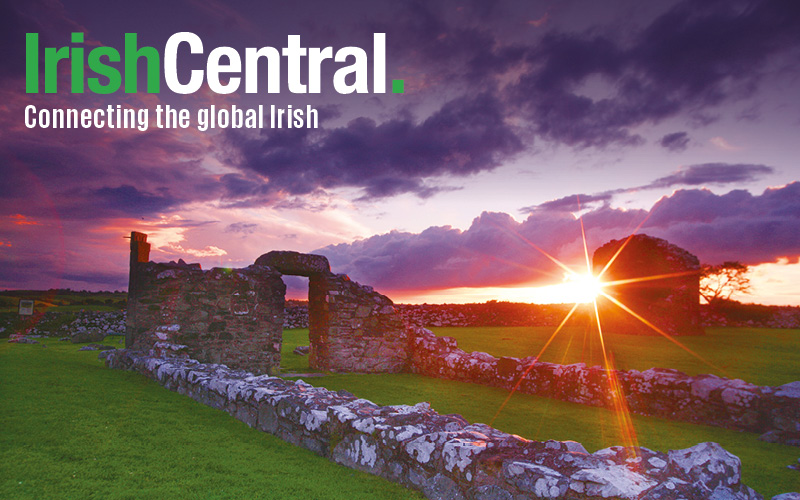Cremations now taking four to five weeks the horrors inflicted upon the families of coronavirus victims have shocked this Cork funeral director.
Pelham Funeral Home in New York, owned for the past six years by Ballinhassig, County Cork native Clive Anderson, recorded a new business record during the first 11 days of April 2020. The home in Westchester County, about 40 minutes north of Manhattan, conducted more funeral services in those 11 days than the first three months of the year combined.
Unsurprisingly, the vast majority of the deceased died from the coronavirus; the first New York cluster in March occurred in New Rochelle, less than three miles from Pelham. And Anderson, a 17-year resident of the U.S. who learned his trade at the Mount Ida College mortuary school in Newton, Massachusetts, has no interest in setting any more records because of the suffering endured by the families of the deceased is too great.
Read more: Michael Dowling, Governor Cuomo's coronavirus crisis manager, on New York's response
“We are absolutely swamped,” Anderson told the Irish Voice on Tuesday. “We are a small boutique funeral home that pays attention to every detail, all the small things, and now we’ve gone from that to getting about 40 calls a day. We just can’t take them all. And it’s not just our home. It’s all of them.”
In usual times, the deceased could be waked and buried in a matter of two or three days. In the new COVID-19 era, that level of service has gone.
“Some families have to wait a week or two or more depending on the cemetery,” Anderson says. “Right now cremations are taking about four or five weeks. I have a hearse going to Pennsylvania every day, and also to Connecticut.”

Cork man in New York, Clive Anderson.
In Anderson’s line of work, he’s used to dealing with grief and sadness on a daily basis. But he’s never seen anything like the horrors inflicted on the families of coronavirus victims.
“It is just horrible. They have been robbed of their loved ones, and in many cases, they’ve been suddenly robbed of their jobs as well,” Anderson says.
“They’ve been robbed of their spiritual advisors because they can’t provide services like Masses. And they’ve been robbed of having friends and family support them because wakes are restricted to no more than 10 people. These people have been robbed of so much right now. It is shocking.”
Wakes provide an opportunity for family and friends to reminisce and share stories about a loved one who has passed. Anderson has always made it a point to bend over backward for the family members left behind, but COVID-19 won’t allow that for now.
Read more: Living in New York as a J-1 graduate during the COVID-19 crisis
“When you have people coming in and you can’t offer them the send-off they want for their family member, it is very tough. We are always used to saying yes to everything,” Anderson says of his business practice.
“I always joke with my staff that we have to be like the Ritz. We have to say yes to everything and meet their needs, whatever they want. And now, it’s like we can’t just say yes anymore.”
Wakes are conducted with no more than 10 people in the room. Masks are compulsory, as is six feet social distancing. Tears are shed without the comfort of a hug or any of the mourners touching at all.
“There is a 51-year-old being waked today. There will be more than 10 people who show up but we can only let 10 in at a time. It’s very sad,” Anderson says.
Nowadays, Anderson has also taken on the role of leading prayers at Pelham’s wakes. He says Catholic prayers, the Lord’s Prayer for Protestant wakes and whatever else he needs to do in order to somewhat ease the deceased family’s trauma.
Anderson and his staff have been literally working around the clock, unsurprising given that New York is the epicenter of the COVID-19 outbreak in the country with hundreds of deaths each day.
“This is really not something that any funeral director wants. We don’t have the staff to keep up with it and the ones we do have are run off their feet and burned out,” Anderson says.
Hiring extra staff to help ease the workload is virtually impossible because funeral directors need to be licensed. “It would be like trying to find toilet paper right now,” he jokes.
Read more: Coronavirus live updates from Ireland
Looking at pictures of body bags piling up in New York hospitals, and the unclaimed deceased being transferred to Hart Island for burial has been jarring for Anderson.
“It’s heartbreaking,” he says. “It’s impossible to know what to say when that happens in New York in this day and age.”
Anderson is hoping that when the pandemic ends, people will cherish the things that truly matter in life.
“Many people have said to me, ‘You don’t know what you’ve got until you’ve lost it.’ They feel bad they can’t go to Mass on Sunday. They feel bad when they can’t connect with loved ones,” he says.
“Those are the important things. I just hope that when this is over we can all be closer together and care about each other more.”
Read more: COVID-19 vaccine may be ready by September says Oxford scientist




Comments